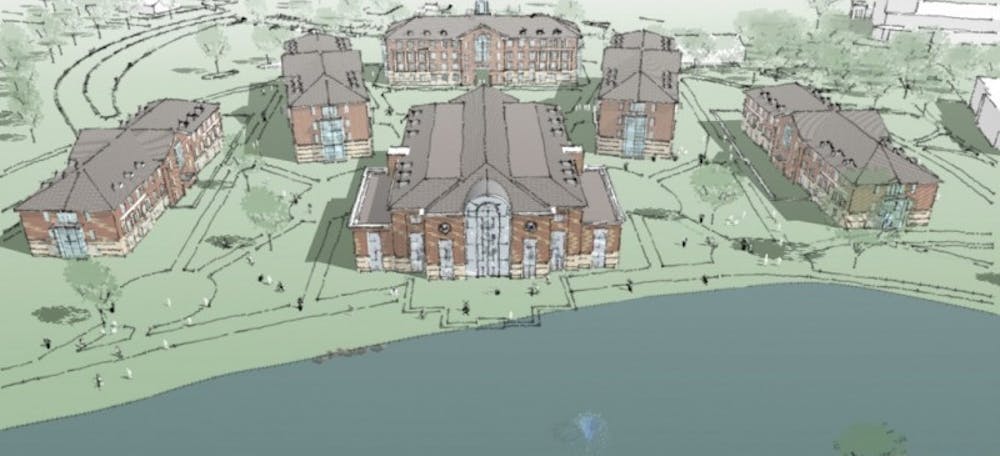With the building of the Global Neighborhood and The Station at Mill Point, Elon University will get even closer to completing its Residential Campus Initiative of building for a capacity of 75 percent of the student body that will mix academics with the living environment.
According to English professor Russell Gill, who is also the faculty liaison between faculty and learning communities, nearly $100 million will be invested to build these new residence facilities in the hopes of connecting the academic life found in the classroom with the lessons learned outside of class.
One of the main ways in place to support this part of the initiative is to have faculty, called teacher scholars, live among the students, said Connie Book, the associate provost for academic affairs. Currently, three teacher scholars live in residences on campus, but it is the hope that that number can be increased not by requirement, but by engagement.
Gill said he supports the initiative and believes having resident faculty is a positive addition to the learning process.
“The philosophy is this: you do not simply learn just in the classroom,” Gill said. “A lot of what you learn outside the classroom is just as important as what you learn inside. This is carries the learning process into the total life of the campus.”
But in a survey of 35 students, 23 of them said they would not want to live in a residency with teacher scholars.
Along with teacher scholars, some of the new residence buildings such as the Global Neighborhood will include classrooms in the buildings as well.
But Book said this will not be what occurred in Colonnades, when residents expressed frustration after some of the student lounges were used as classrooms. There will be a clear division between living space and areas designated as classrooms.
“It is awful to take something away,” Book said. “I want to stress that the students who felt uncomfortable about that being taken away, the faculty felt uncomfortable too. There are three floors in each of the (Global Neighborhood) buildings, and only the first floor we are talking about possibly using as learning facilities.”
Another big part of the initiative is to give students the option to stay on campus longer.
Allowing students to live on campus for a great percentage of their time at Elon enhances one's experience because living exposes students to more diversity, according to Book.
“As you advance at Elon, you are more and more likely to build homogenous relations due to your major and organizations you are involved in,” Book said. “So part of on-campus living is that you may not be living with them in your room, but they might be next door, so it keeps us engaged in difference.”
In the same survey of the 35 students, 20 of the students said if the initiative could allow them to live on campus longer, they would choose to live on campus.
According to Gill, the residential campus initiative is just one more step in The Elon Commitment and the overall evolution of Elon.
The initiative pushes to deepen the intellectual experience of students, Book said.
“I think that is what universities really hope to do, to produce life long learners and for students to have a undergraduate experience that is full of growth,” she said. “We really enjoy watching this informative time in a young persons’ life. I think that reflects what and why we called it The Elon Commitment because we are thinking of creative and meaningful ways of engaging our students.”


